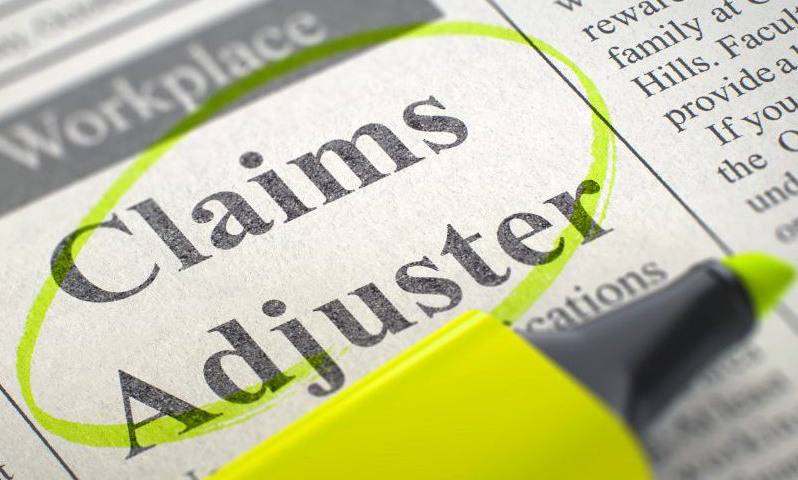If you’re going through the insurance claims process, you’re no doubt under a lot of stress. Whether you’re dealing with water damage or mold damage from hurricane season, mitigating damage from a small fire, or wondering if you got a fair shake in a recently-settled claim, navigating the insurance process can be a confusing process.
So if someone shows up at your door and tells you they’re an independent claims adjuster, that must be a good thing, right?
While dealing with an independent claims adjuster might be an essential part of the insurance claim process, not all is as it seems. And if you choose to only work with an independent adjuster, there are a few things you should know first.
Here’s the difference between an independent adjuster vs. public adjuster.
What Does an Insurance Adjuster Do?
When your home or business is damaged in a hurricane or other accident, you’ll need to estimate the cost of repair at some point in the claims process. In most cases, you’ll also need to estimate the value of any material goods – such as furniture and electronics – that were damaged.
But how well-equipped are you to perform this task? At this point, the average homeowner will often call in a bunch of contractors to get estimates. To be sure, qualified contractors can give you a lot of good information, and will let you know if that water-damaged wall is load-bearing or not. But then you’re depending on someone else to give you all the information for your claim; someone who has an interest in charging as much as possible.
If your claim is unrealistically high – and sometimes even when it’s not – the insurance company may request that an insurance adjuster look at the damages and write up their own estimate. This is a way of ensuring that people don’t file fraudulent claims, and it is an important part of keeping insurance costs affordable. But it can be unpleasant if you’re the one whose claim is being adjusted.
And even if you don’t involve any contractors in your estimate, you may make another mistake: underestimating your damages. Do you know how to look for mold damage in a foundation header? Or how to know if an electrical like needs to be replaced? If not, you may want to hire an adjuster of your own.
Who Does an Independent Insurance Adjuster Work For?
So, back to our hypothetical scenario: someone tells you they’re an independent insurance adjuster.
What does this mean?
While an independent insurance adjuster will estimate your damages without charging you a penny, this doesn’t mean they work for free. They’re paid by your insurance company to ensure that people’s claims are realistic and that the insurance company isn’t overpaying for any damages.
Now, these adjusters are bound by a strict code of ethics, and for the most part, they’re not going to go out of their way to deny a reasonable claim. However, they may do other things that indirectly cost you money. For instance, if they can’t see what brand of kitchen appliances you had, they may claim cheap replacements. And if you’re not paying close attention to the claim, you may not even notice.
Who Does a Public Insurance Adjuster Work For?
Public adjusters, as opposed to independent adjusters, work directly on your behalf during the claims process. Their job is to make sure that you get as large a settlement as possible. Now, this isn’t to say that they’re some kind of wizards. They simply go through the legal requirements of your insurance policy and ensure that you get every penny that’s required.
A public insurance adjuster also acts as your liaison to the insurance company. If you’re worried about making a mistake on a form, or if you just want to be sure that all your T’s are crossed and your I’s are dotted, they can help you keep your cool.
Public adjusters are paid a fixed percentage of your claim, not a set fee. So they only get paid when you get paid. This means you don’t have to worry about up-front fees.
When Should I Hire a Public Insurance Adjuster?
To begin with, one good time to hire a public adjuster is if your insurance company has sent their own adjuster to investigate. In this case, it’s generally in your best interest to have someone on your side in any upcoming negotiations.
Another good reason to hire a public insurance adjuster is if you’re simply not sure what you should and shouldn’t be claiming. They can help you understand what kind of damage is covered by your insurance, so you can maximize your payout.
Keep in mind that public insurance adjusters can be hired by companies as well as by individuals. So even if you’re dealing with damage to a small business or commercial property, you may benefit from hiring one.
